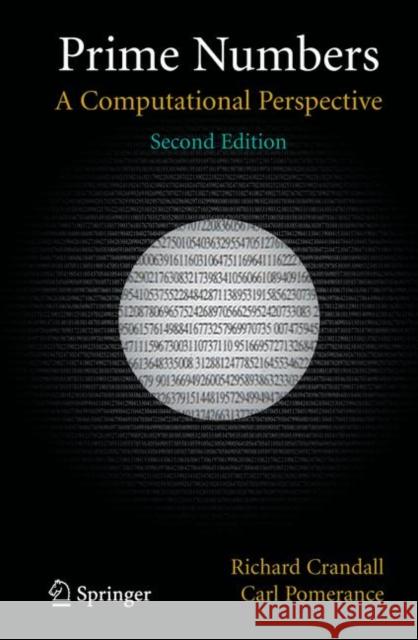Prime Numbers: A Computational Perspective » książka
Prime Numbers: A Computational Perspective
ISBN-13: 9781441920508 / Angielski / Miękka / 2010 / 597 str.
Prime numbers beckon to the beginner, the basic notion of primality being accessible to a child. Yet, some of the simplest questions about primes have stumped humankind for millennia. In this book, the authors concentrate on the computational aspects of prime numbers, such as recognizing primes and discovering the fundamental prime factors of a given number. Over 100 explicit algorithms cast in detailed pseudocode are included in the book. Applications and theoretical digressions serve to illuminate, justify, and underscore the practical power of these algorithms. The 2nd edition adds new material on primality and algorithms and updates all the numerical records, such as the largest prime, etc. It has been revised throughout. From the reviews of the first edition: " The exercises are a gold mine of interesting examples, pointers to the literature and potential research projects. Prime Numbers is a welcome addition to the literature of number theory comprehensive, up-to-date and written with style. It will be useful to anyone interested in algorithms dealing with the arithmetic of the integers and related computational issues." American Scientist "Destined to become a definitive textbook conveying the most modern computational ideas about prime numbers and factoring, this book will stand as an excellent reference for this kind of computation, and thus be of interest to both educators and researchers. It is also a timely book, since primes and factoring have reached a certain vogue, partly because of cryptography. " L Enseignement Mathematique "The book is an excellent resource for anyone who wants to understand these algorithms, learn how to implement them, and make them go fast. It's also a lot of fun to read It's rare to say this of a math book, but open Prime Numbers to a random page and it's hard to put down. Crandall and Pomerance have written a terrific book." Bulletin of the AMS"











